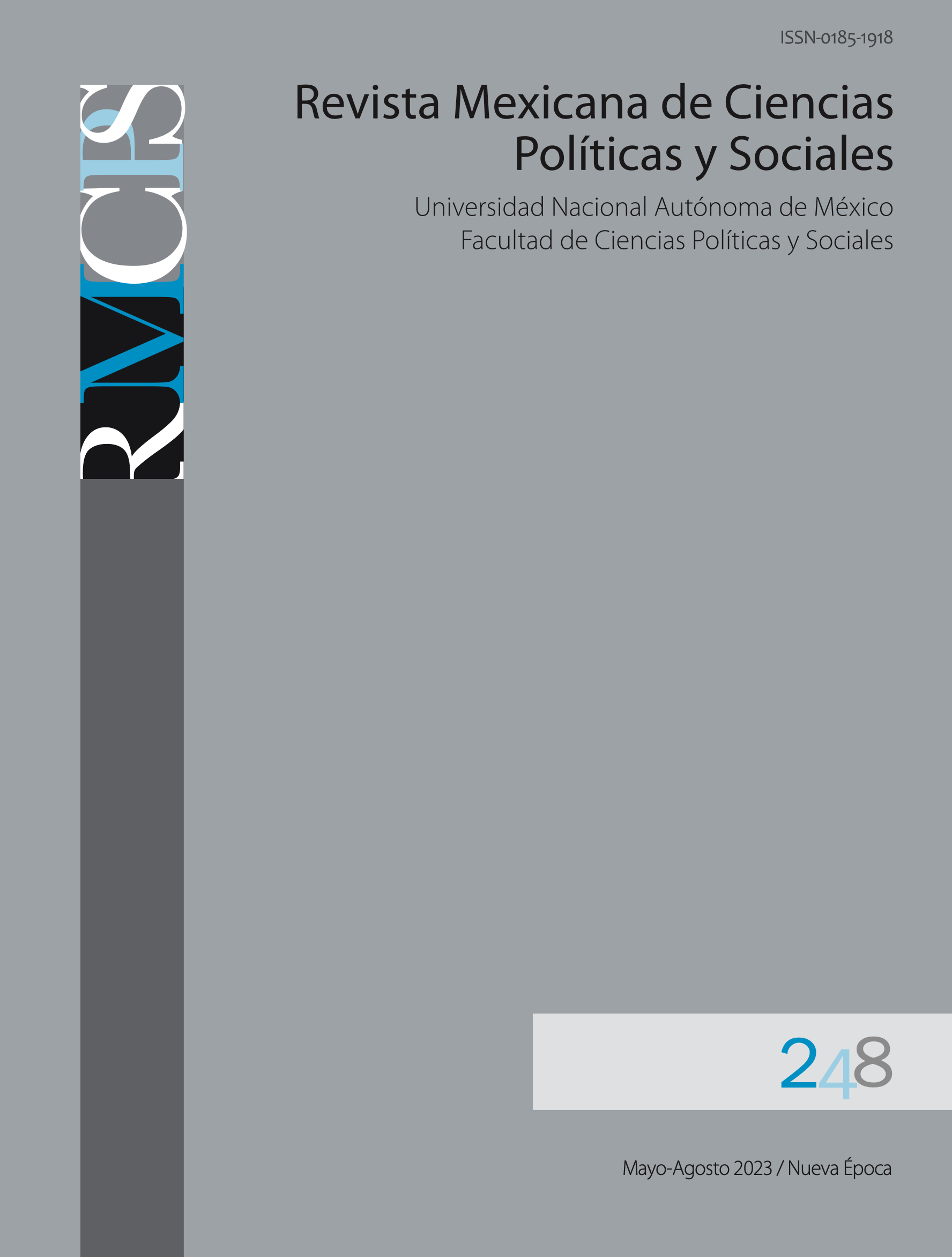Binary Logic, History and Social Sciences: Immanuel Wallerstein’s Approach
Main Article Content
Abstract
This paper rescues the constitutive character that some of the antinomies present in the conformation of modern thought have had. It delves from a fundamental premise: to underline a social history that serves as a base for the very trajectory of the social sciences. We will emphasize the structuration theory designed by Anthony Giddens and Pierre Bourdieu’s genetic structuralism. We will then consider the work of Immanuel Wallerstein, a perspective focused on the historicization of the modern world system and its structural relationship to the intellectual division of labor. For Wallerstein, the center of the malaise in moments of crisis of the pattern of capitalist power is oriented towards the constitution of modern thought and its epistemological division of scientific knowledge and philosophy or, in general, of the humanities. Finally, we will problematize the restrictive notion of totality supported by Wallerstein through the notion of social totality designed by Peruvian Aníbal Quijano.
Downloads
Article Details
References
Baert, Patrick (2001) La teoría social en el siglo XX. Madrid: Alianza.
Bourdieu, Pierre (2003) El campo científico. Buenos Aires: Nueva visión.
Bourdieu, Pierre y Loic Wacquant (2008) Una invitación a la sociología reflexiva. Buenos Aires: Siglo XXI.
Burke, Peter (2007) Historia y teoría social. Buenos Aires: Amorrortu.
Giddens, Anthony (2006) La constitución de la sociedad. Bases para la teoría de la estructuración. Buenos Aires: Amorrortu.
Giddens, Anthony y Jonathan Turner (2010) La teoría social hoy. Madrid: Alianza Universidad.
Kocka, Jürgen (2002) Historia social y conciencia histórica. Madrid: Marcial Pons.
Lahire, Bernard (2005) “Campo, fuera de campo, contracampo” en Bernard, Lahire (ed.) El trabajo sociológico de Pierre Bourdieu. Deudas y críticas. Buenos Aires: Siglo XXI.
Nisbet, Robert (2003) La formación del pensamiento sociológico. Buenos Aires: Amorrortu.
Quijano, Aníbal (2000) “El fantasma del desarrollo en América Latina” Revista Venezolana de Economía y Ciencias Sociales, 6(2): 73-90.
Quijano, Aníbal (2014) Colonialidad del poder y clasificación social. Buenos Aires: CLACSO.
Snow Charles P. (1988) Las dos culturas. Buenos Aires: Nueva Visión.
Wallerstein, Immanuel (1999) Después del liberalismo. Ciudad de México: Siglo XXI.
Wallerstein, Immanuel (2003a) Abrir las ciencias sociales. Ciudad de México: Siglo XXI.
Wallerstein, Immanuel (2003b) Impensar las ciencias sociales. Ciudad de México: Siglo XXI.
Wallerstein, Immanuel (2004) Capitalismo histórico y movimientos antisistémicos. Un análisis de sistemas-mundo. Madrid: Akal.
Wallerstein, Immanuel (2005) Las incertidumbres del saber. Madrid: Gedisa.
Wallerstein, Immanuel (2007) Universalismo europeo. El discurso del poder. Ciudad de México: Siglo XXI.

La Revista Mexicana de Ciencias Políticas y Sociales publicada por la Universidad Nacional Autónoma de México se distribuye bajo una Licencia Creative Commons Atribución-NoComercial-SinDerivar 4.0 Internacional.
Basada en una obra en http://www.revistas.unam.mx/index.php/rmcpys/
La RMCPyS autoriza a sus colaboradores que suban una copia de sus trabajos publicados en sus webs personales o en cualquier repositorio de acceso abierto, siempre y cuando se mencione específicamente a la Revista Mexicana de Ciencias Políticas y Sociales como fuente original de procedencia, citando el año y número del ejemplar respectivo y añadiendo el enlace a la página web donde este órgano editorial puede ser consultado in toto, de manera abierta y gratuita en: <www.revistas.unam.mx/index.php/rmcpys>.
Las y los lectores tienen libertad para:
Compartir, copiar y redistribuir el material en cualquier medio o formato.
El licenciante no puede revocar estas libertades en tanto usted siga los términos de la licencia.
De acuerdo con los siguientes términos:
- Atribución: la/el lector/a debe reconocer el crédito de una obra de manera adecuada, proporcionar un enlace a la licencia, e indicar si se han realizado cambios. Puede hacerlo en cualquier forma razonable, pero no de forma tal que sugiera que tiene el apoyo del licenciante o lo recibe por el uso que hace.
- No comercial: la/el lector/a no puede hacer uso del material con fines comerciales.
- Si se mezcla, transforma o se desarrolla a partir de la obra licenciada, no se permite la distribución del material modificado.
Cargos por gestión de artículos
La Revista Mexicana de Ciencias Políticas y Sociales NO cobra tarifas por recibir, procesar o publicar los artículos (Article Processing Charge [APC]) enviados por los autores.

